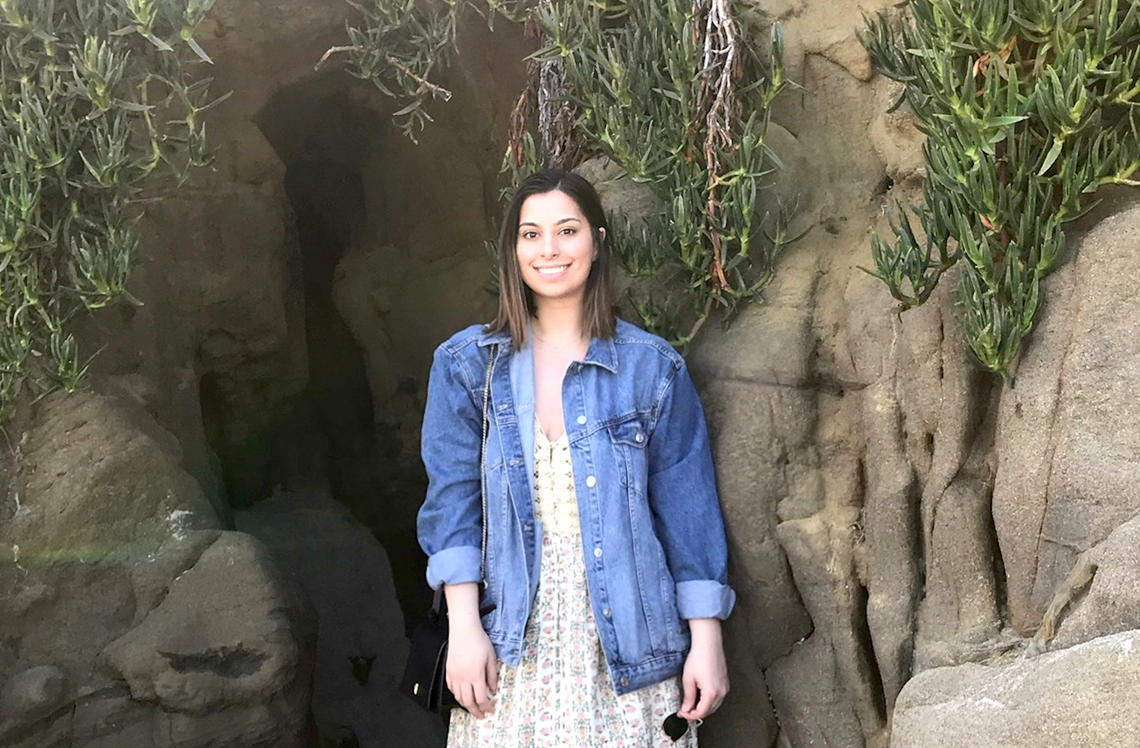Feb. 5, 2021
UCalgary Political Science Congratulates Ariana Agouridis!

On winning the 2019–20 The Don I. Ray Prize
Ariana Agouridis’ paper was written for POLI 473 Latin American Politics and nominated by Dr. Pablo Policzer.
Dr. Pablo Policzer, tell us a bit about the course for which Ariana’s paper was written. What made their paper stand out?
A core aim of the course is to understand some of the challenges and threats to democracy in the region. One of these is to balance the twin goals of broad democratic participation with that of building effective institutions that uphold the rule of law. Ariana wrote a terrific paper that addresses this problem by explaining different outcomes in similar recent constitutional referenda over loosening presidential term limits, in Ecuador and Bolivia. In each case, referenda were held by reformist presidents whose support is based on bringing previously excluded populations (including Indigenous communities), into the political mainstream. While both countries’ voters denied doing away with term limits, the results of Ecuador’s referendum were upheld, but in Bolivia, they were overturned by the country’s Constitutional Tribunal. Ariana argued that “in Bolivia, popular participation through direct democracy and the state’s cooptation of Indigeneity weakened legislative and judicial independence to an extent greater than … in Ecuador.” Weaker institutions in turn “resulted in the Constitutional Tribunal’s decision to reverse the referendum.” Ariana’s paper was insightful and well written. It combined analytical and methodological sophistication, with an empirical richness to shed light on a core social justice and democratic governance issue.

Ariana Agouridis, what was the title of the paper and can you give us a brief description of its main findings or arguments?
My paper was called “Referenda, Executive Power, and Popular Participation: Comparing Bolivia and Ecuador”. It examined Bolivia’s (2016) and Ecuador’s (2018) referendum votes on constitutional term limits which resulted in constitutional amendments for Ecuador to eliminate, and for Bolivia to extend, term limits. Both countries voted to maintain the existing term limits, but in Bolivia, this vote was successfully overturned by the ruling party.
My paper was an attempt to explain why, despite immense similarities between the two nations, the referendum result was respected in one country (Ecuador) but overturned in another (Bolivia). My explanation came down to Bolivia’s higher degree of civil participation—particularly the participation of Indigenous peoples—which was mandated within its constitution.
Looking back and expanding on the paper today, I think my major finding was that when a state increases participation, without first solidifying a strong division of power within government, it is possible that methods for “direct” or participatory democracy (referenda, the popular election of judges, etc) can empower the authoritarian tendencies of leaders.
Any tips on writing an excellent paper?
I actually got two tips from Dr. Policzer that improved the quality of my papers by leaps. The first is that good writing is short, simple, and clear. In my papers, I try to avoid flowery language unless absolutely necessary. The second is to have someone with no prior knowledge of your topic vet your work. My mom edits my rough drafts and if she, a person with no interest in politics or social sciences, can follow my argument, then I know I’m on the right track.
What are your plans for the future?
I wish I had a better answer for this question but lately my plans for the future change by the week. My hope is that I will be doing meaningful work to promote legal, social, and economic forms of justice. The question remains as to what kind of work and in what field this will be. In the mean-time, I work for a Vancouver-based marketing agency and do translation and editing work for texts on international relations and geopolitics.
Congratulations to Ariana Agouridis on your 2019–20 The Don I. Ray Prize!
